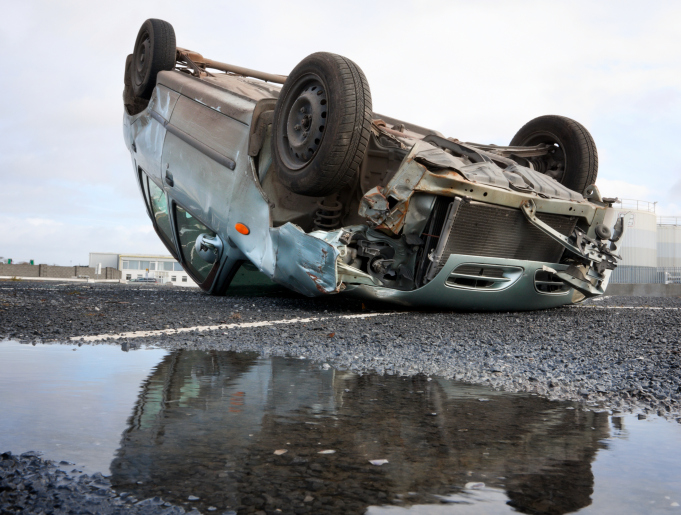Cars and Drivers
Highway Fatality Rate Highest in Montana, Lowest in DC
Published:
Last Updated:

Highway fatalities represented 1.3% of all deaths in 2013, according to a new research report from the University of Michigan’s Transportation Research Institute. Researchers Michael Sivak and Brandon Schoettle compiled the report based on data from the Centers for Disease Control and Prevention (CDC) and the National Highway Transportation Safety Administration (NHTSA).
The six states with the highest highway fatality rates per 100,000 people are Montana (22.6), Mississippi (20.5), North Dakota (20.5), West Virginia (17.9) and Alabama and Oklahoma (17.6).
The lowest highway fatality rates were posted in the District of Columbia (3.1), Massachusetts (4.9), New Jersey (6.1), New York (6.1) and Rhode Island (6.2).
The researchers compared these highway fatality rates to deaths from cancer, heart diseases, lung diseases, strokes and Alzheimer’s disease. Compared with the nation’s biggest killer — heart diseases — which killed 193.3 Americans per 100,000 population in 2013, car crashes killed 10.4, about 5.4% of the number who succumb to heart diseases.
As a percentage of all deaths, highway fatalities comprised 2.4% of all deaths in Montana and North Dakota in 2013, compared with 0.4% in the District of Columbia.
ALSO READ: The Most Dangerous Cities in America
Among their conclusions, Sivak and Schoettle particularly note that the ratio between the highest (Montana) and the lowest (DC) highway fatality rates is 7.3, compared with a ratio of just 2.2 for deaths from all causes between the highest (West Virginia, 1,178) and the lowest (Alaska, 543.7).
The researchers do not suggest what may be the reasons for the wide difference between the high fatality rates in the highest and lowest risk states, so we looked at some data on our own.
One possible reason could be the relatively low populations in the states with the highest highway death rates. Another could be the sheer size of these sparsely populated states and the number of two-lane roads with high speed limits.
A third might be alcohol-impaired driving. The CDC has reported that 31% of all U.S. highway fatalities in 2013 were the result of alcohol-impaired driving (blood alcohol level above 0.08 grams/deciliter).
According to a December 2014 report from the NHTSA, the state with 2013’s greatest percentage of highway fatalities where the driver’s blood-alcohol level was above 0.08 was South Carolina (44%), followed by North Dakota (42%), Connecticut (41%), Texas (40%) and Montana (40%).
Another NHTSA report issued this past June attributes 29% (9,613) of all 2013 highway fatalities (32,719) to speeding-related crashes. These crashes include driving too fast for existing conditions, exceeding the posted speed limit and racing. From the report:
Alcohol involvement was more common for drivers involved in speeding-related fatal crashes than in fatal crashes in which speed was not involved. … In 2013, about 42 percent of speeding drivers in fatal crashes had [blood-alcohol contents] BACs of .08 or higher, compared to only 16 percent of non-speeding drivers involved in fatal crashes.
The state of Montana, where the fatality rate is the highest in the country and 40% of all fatalities were related to alcohol-impaired drivers, just raised the speed limit on portions of the state’s Interstate highways to 80 mph.
ALSO READ: 10 Cities With the Worst Traffic
The thought of burdening your family with a financial disaster is most Americans’ nightmare. However, recent studies show that over 100 million Americans still don’t have proper life insurance in the event they pass away.
Life insurance can bring peace of mind – ensuring your loved ones are safeguarded against unforeseen expenses and debts. With premiums often lower than expected and a variety of plans tailored to different life stages and health conditions, securing a policy is more accessible than ever.
A quick, no-obligation quote can provide valuable insight into what’s available and what might best suit your family’s needs. Life insurance is a simple step you can take today to help secure peace of mind for your loved ones tomorrow.
Click here to learn how to get a quote in just a few minutes.
Thank you for reading! Have some feedback for us?
Contact the 24/7 Wall St. editorial team.